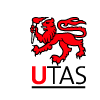The Clinical Supervision Relationship
The relationship that the supervisor has with the professional school and the sending university will differ depending on the profession, school and university. The schools and university act as gatekeepers to the health professions. They award the degrees that allow graduates to seek licensure as health professionals. The decision to deem a student competent to practice in a particular profession relies on the collection of a wide range of evidence.
The supervisor plays a critical role in facilitating work-place learning experiences which enable students to develop skills, knowledge and attitudes suitable for a health professional. This role extends to the provision of evidence as to the students’ readiness for practice. In many instances this evidence is submitted to the school in the form of a clinical practice report or similar document.
There are several things that the supervisor could expect to receive from the school. These include:
- Negotiation for the student placement.
- Notification of when the student is arriving, who he or she is, what year they are in and what they are expected to achieve when they are in practice.
- Unit outlines.
- Contact details for the responsible academic or general staff member.
- Relevant forms for completing a student report.
Payment or in-kind recognition and reward are dependent upon the sending university’s policy, the profession and the supervisor.
|




